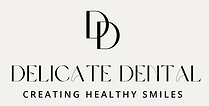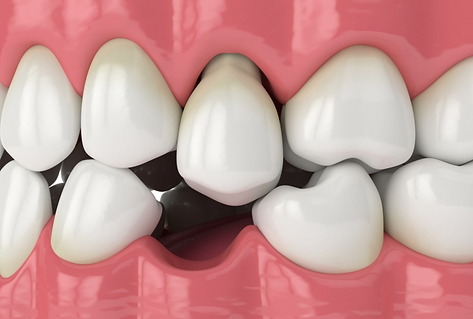
Missing Teeth

Missing teeth can impact many areas of your life. Gaps in your teeth can harm your oral health and cause embarrassment and low self-esteem. Do you never smile or automatically cover your mouth when you smile, laugh, or talk? You should address your missing teeth as quickly as possible.
Continue reading to learn more about why your dentist recommends replacing a lost tooth or teeth. Dr. Mark Sowell and Dr. Sara Chen provide tooth replacement options in Plano, TX.
Consequence of Missing Teeth
The biggest risk of missing teeth is jaw bone loss, which can lead to additional oral health problems. When teeth are missing, there’s nothing to stimulate the underlying jaw bone and it begins to deteriorate. If you do not seek treatment, it will continue to degrade over time, making option for tooth replacement more difficult. In turn, this can affect your remaining healthy teeth.
Neighboring healthy teeth can become less stable, loose, crooked, or cause problems with jaw alignment. Loose or crooked teeth or a misaligned jaw can increase your risk for gum disease. Crooked teeth are more difficult to clean, and loose teeth may allow bacteria to settle in. These teeth can also become overcrowded as the jawbone continues to deteriorate, posing a tooth fracture and decay risk.
Patients with missing teeth are more susceptible to malocclusion, jaw bone resorption, and super eruption of the opposing teeth. Having voids in your mouth will limit the food you can eat and can eventually lead to further dental issues as well.
Missing Teeth Replacement Options
Replace your missing teeth soon to keep your jaw in alignment and protect your natural teeth from decay. Missing teeth may result in issues with bite stability and cause problems eating or speaking. Fortunately, we have several treatments available for our patients who are dealing with the consequences of missing teeth. We can provide implant-supported dentures, traditional dentures, dental bridges, and dental implants.
Dr. Dee and our dental team have extensive training and experience in restorative dentistry. We will help you choose which treatment is right for you after a comprehensive evaluation to diagnose your condition. We will only make the most relevant recommendations that will offer you the most benefits. The following are treatments available at our dental office that can replace your missing teeth.
1. Dental Bridges
A bridge is a prosthesis (replacement part) that fills the gap left by a missing tooth. The surrounding healthy teeth hold it in place. In dental terms, the artificial replacement tooth is called a “pontic” (from the French word “pont” meaning bridge).
The healthy adjacent teeth, called abutments, support the pontic on either side. The completed prosthesis crosses over the gap in your teeth like a bridge spanning a canyon.
2. Dental Implants
According to tooth replacement experts, a dental implant offers people with missing teeth a permanent smile solution. A dental implant is simply a tiny post embedded in the jaw that attaches to a dental crown. The crown fills in the gap left by a lost tooth to restore your teeth’ appearance, health, and full use.
Both patients and dentists often recommend dental implants because they look, feel, and function like your natural teeth. While the cost of dental implants may be more than other options, their many benefits make them well worth the extra dental implant costs. To learn more about our dental implant services, see Implant Dentistry.
3. Traditional Dentures
Dentures are a set of artificial teeth that restore function without dental implants. Partial dentures are ideal for patients who only need a few teeth replaced or just the top or bottom arch. Full dentures replace all teeth in your mouth.
Both partial and full dentures require mouth impressions and precise measurements to ensure they fit correctly. To learn about our denture services, see Cosmetic Dentures.
4. Implant-supported dentures
Implant-supported dentures replace full arches of missing teeth. A few strategically placed implant posts secure them in place, which supports gum health more than traditional dentures. Implants stimulate jaw bone growth, keeping the jaw from shrinking or changing shape over time. Traditional dentures do not offer this benefit.
